Exploring the “Best Blockchain Books” is essential for anyone looking to deepen their understanding of this groundbreaking technology. Whether you are a beginner curious about the fundamentals or an advanced learner aiming to refine your technical skills, the right books can significantly enhance your knowledge and expertise in blockchain. This guide will help you navigate through a curated selection of influential books, each offering unique insights into the diverse aspects of blockchain technology. From comprehensive introductions to detailed technical analyses, these books cover the entire spectrum of blockchain learning, ensuring that readers of all levels find valuable resources to aid their educational journey.
Table of Contents
What is Blockchain?
Blockchain technology is often touted as revolutionary, but what exactly does it entail? At its core, blockchain is a distributed ledger technology that maintains a decentralized and immutable record of transactions. Here, we’ll break down the concept to provide a clear understanding of how blockchain works and why it’s considered so transformative.
The Basics of Blockchain
Blockchain is essentially a system of recording information in a way that makes it difficult or impossible to change, hack, or cheat the system. A blockchain is a digital ledger of transactions that is duplicated and distributed across the entire network of computer systems on the blockchain. Each block in the chain contains a number of transactions, and every time a new transaction occurs on the blockchain, a record of that transaction is added to every participant’s ledger.
Key Features of Blockchain
- Decentralization: Unlike traditional ledgers or databases that are controlled by a central authority (like a bank or government agency), blockchain is decentralized. This means that it is maintained by a network of nodes (computers), making it not only resistant to corruption but also providing a high level of transparency.
- Immutability: Once a transaction is recorded on a blockchain, it is extremely difficult to alter, to not say impossible. This immutability is safeguarded by cryptographic hash functions, which secure the data and ensure that any alteration of transaction records is easily detectable.
- Transparency: As each transaction is recorded on the blockchain, it is visible to all participants and cannot be altered without the consensus of the network. This transparency helps to build trust among users and ensures that all transactions are conducted openly.
- Security: Blockchain utilizes advanced cryptography to provide security. Each transaction is encrypted and linked to the previous transaction. Along with its decentralized nature, this makes blockchain extremely secure against fraud and cyber attacks.
- Consensus Algorithms: Blockchains use various consensus algorithms to agree on the validity of transactions. This includes proof of work, proof of stake, and many others, which help to maintain the integrity and harmony of the blockchain without the need for a central authority.

Source: The Motley Fool
Applications of Blockchain
While blockchain technology started with Bitcoin and other cryptocurrencies, its potential extends far beyond. Today, it is being explored and adopted in various fields such as finance, healthcare, supply chain management, and even voting systems, among others. The ability to keep a secure and unalterable ledger of data makes it especially appealing for any sector that relies on the integrity of data.
Understanding blockchain is fundamental for anyone looking to get involved with this technology, whether through investing, developing, or simply using blockchain-based applications. This foundational knowledge not only demystifies how transactions are processed and recorded but also highlights the technology’s potential to impact various industries by offering a more secure, transparent, and efficient way to conduct digital transactions.
Why Read Books on Blockchain?
As blockchain technology continues to evolve and permeate various sectors, understanding its foundational concepts and potential applications becomes increasingly important. Books offer a comprehensive, structured, and in-depth approach to learning that other mediums can’t always match. Here’s why delving into books on blockchain is beneficial for anyone serious about grasping this revolutionary technology.
Depth of Information
Books typically provide a thorough exploration of topics, offering more depth than articles, blogs, or short courses. Authors have the space to delve into the nuances of blockchain technology, including its technical aspects, historical development, and future implications. This depth is crucial for truly understanding the complexities and potentials of blockchain.
Credibility and Expertise
Books on blockchain are often written by experts in the field—developers, scholars, and industry leaders who have firsthand experience and deep knowledge of the technology. This level of expertise ensures that the information is not only accurate but also enriched with insights that can only come from years of direct involvement with blockchain.
Comprehensive Learning Experience
Books provide a structured learning journey that can help readers build their knowledge from the ground up. They often start with fundamental concepts before progressing to more advanced topics. This comprehensive approach makes it easier for readers to follow along and build a solid foundation of understanding, regardless of their prior knowledge level.
Reference Material
Books serve as excellent reference material that you can return to time and again. As you grow in your blockchain journey, the ability to revisit certain chapters or sections to clarify concepts or refresh your knowledge becomes invaluable. Unlike online content, which can be ephemeral or variable in quality, a good book remains a consistent and reliable resource.
Diverse Perspectives
Reading multiple books on blockchain allows you to gain a variety of perspectives on the technology. Different authors may focus on different aspects of blockchain, such as its cryptographic foundations, its economic impacts, or its regulatory environment. Exposing yourself to these diverse viewpoints can provide a more rounded understanding of the subject.

Engaging with Complex Theories
Books often tackle the theoretical and conceptual underpinnings of blockchain technology in a way that shorter pieces or digital content shy away from. They can afford to engage with complex theories and provide examples or case studies that illuminate these concepts in practical, understandable ways.
Offline Learning
In an increasingly digital world, the ability to learn offline can be a respite from screen time. Reading a book offers a break from the constant distractions of notifications and the online environment, allowing for more focused and reflective learning.
Understanding blockchain through books is not just about acquiring knowledge—it’s about engaging with the technology at a deeper level. For anyone serious about mastering blockchain or integrating it into their professional life, books are an indispensable resource. They not only provide comprehensive and reliable information but also stimulate critical thinking and a deeper understanding of how blockchain can be applied in various real-world scenarios.
Best Blockchain Books for Beginners
Embarking on the journey of understanding blockchain technology can be daunting for beginners. However, several well-crafted books are designed to ease new learners into the complex world of blockchain. Here are some of the best blockchain books that are perfect for beginners, providing clear explanations without overwhelming technical jargon.
“Blockchain Basics: A Non-Technical Introduction in 25 Steps” by Daniel Drescher

This book is an excellent starting point for those new to blockchain. It breaks down the technology into 25 easy-to-understand steps, making it accessible for readers without a technical background. The approach Drescher takes is educational and engaging, ensuring that fundamental concepts are clarified before moving on to more complex topics.
“The Basics of Bitcoins and Blockchains” by Antony Lewis Blockchains” by Antony Lewis

Another fantastic resource for beginners, this book provides insights into the history and mechanics of Bitcoin and the broader concept of blockchains. Antony Lewis uses straightforward language to explain how cryptocurrencies and blockchains work and why they matter in today’s digital economy.
“Blockchain for Dummies” by Tiana Laurence
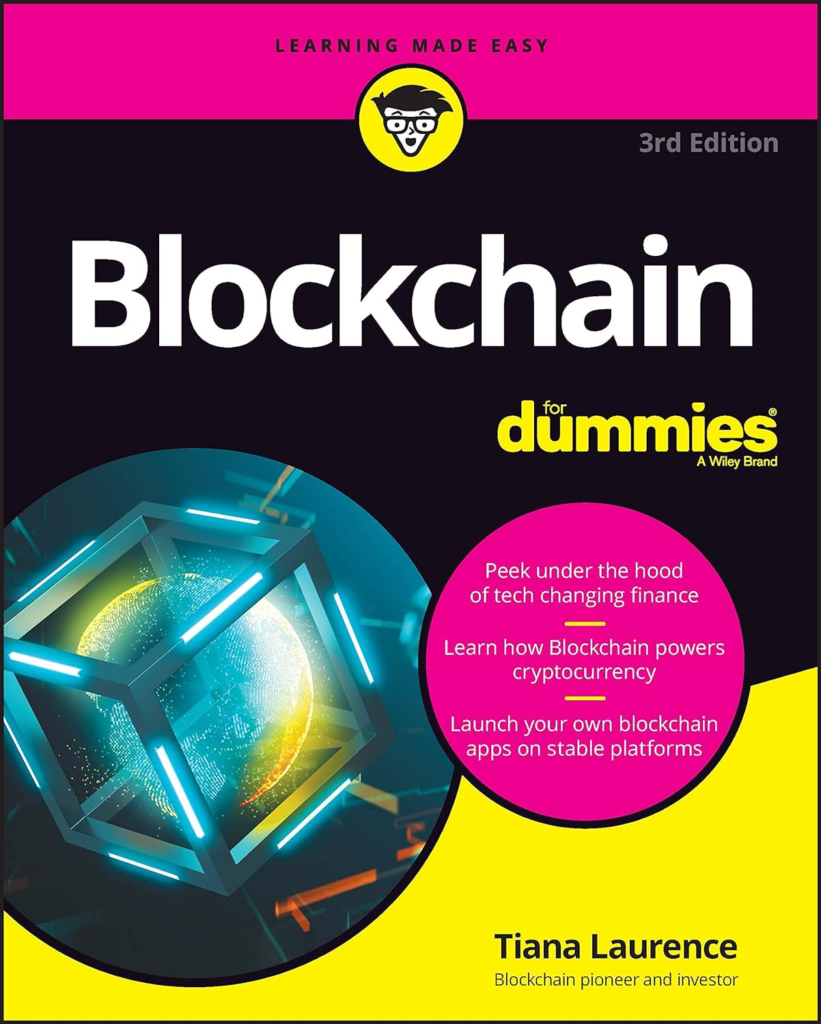
Part of the popular ‘For Dummies’ series, this book offers a primer on what blockchain is and how it can be used in various industries. It’s particularly helpful for readers who want a broad overview of the technology’s potential applications beyond just cryptocurrency.
“Cryptoassets: The Innovative Investor’s Guide to Bitcoin and Beyond” by Chris Burniske and Jack Tatars“Cryptoassets: The Innovative Investor’s Guide to Bitcoin and Beyond” by Chris Burniske and Jack Tatar

While slightly more advanced, this book is still appropriate for beginners who are specifically interested in the investment aspect of blockchain and cryptocurrencies. It not only covers the technology but also dives into how to invest wisely in cryptoassets. The authors provide a framework for evaluating and investing in these new assets.
These books are chosen for their clarity, comprehensive coverage, and ability to demystify complex topics, making them some of the best blockchain books for beginners. Each one will equip you with the foundational knowledge required to understand blockchain technology and its implications in various sectors. Whether you’re just curious about the technology or considering blockchain for business applications, these reads will provide the insights you need to get started on solid ground.
Top Picks for Advanced Readers
For those who already have a foundational understanding of blockchain technology and are looking to deepen their knowledge, there are several advanced books that delve into the more complex aspects of blockchain and its applications. Here are some top picks that cater to advanced readers, offering in-depth analyses and explorations of cutting-edge blockchain developments.
“Mastering Bitcoin: Unlocking Digital Cryptocurrencies” by Andreas M. Antonopoulos
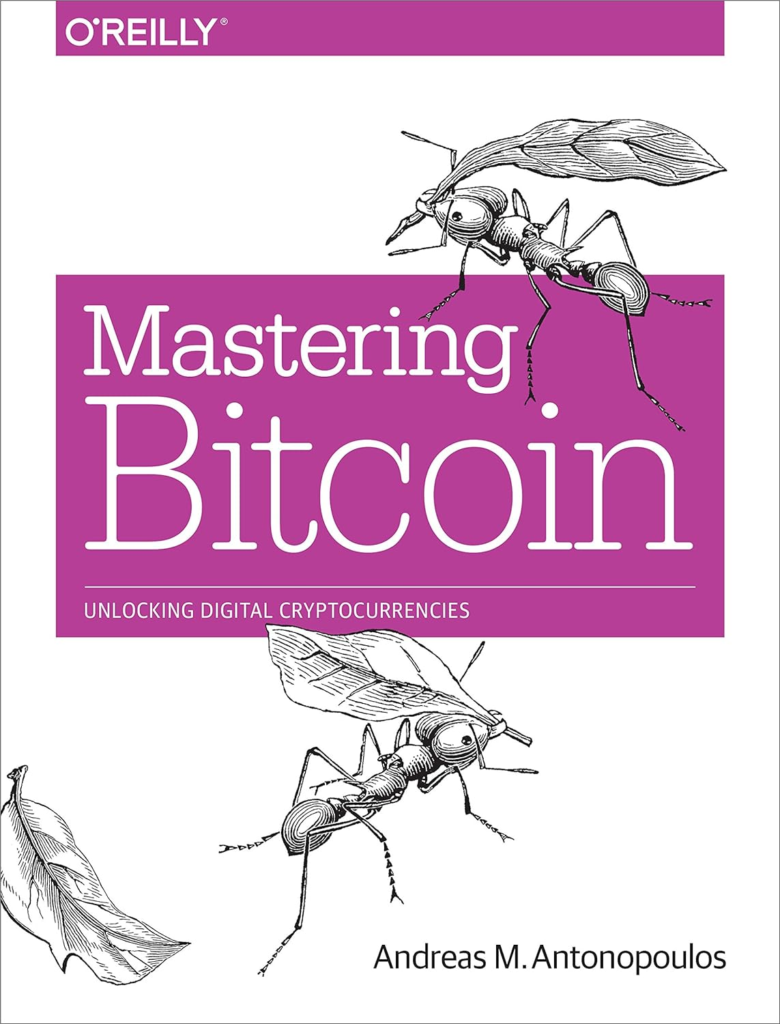
This book is a comprehensive deep dive into the technological underpinnings of Bitcoin and by extension, blockchain technology. Ideal for developers, engineers, and technical enthusiasts, it covers everything from the basics of blockchain to the intricate details of nodes, forks, and security protocols.
“Blockchain Revolution: How the Technology Behind Bitcoin and Other Cryptocurrencies is Changing the World” by Don Tapscott and Alex Tapscott

While suitable for readers at different levels, this book offers advanced insights into how blockchain will potentially reshape various industries, from finance to education to government. It’s particularly valuable for professionals who are exploring blockchain implementations in their fields.
“Mastering Ethereum: Building Smart Contracts and DApps” by Andreas M. Antonopoulos and Gavin Wood
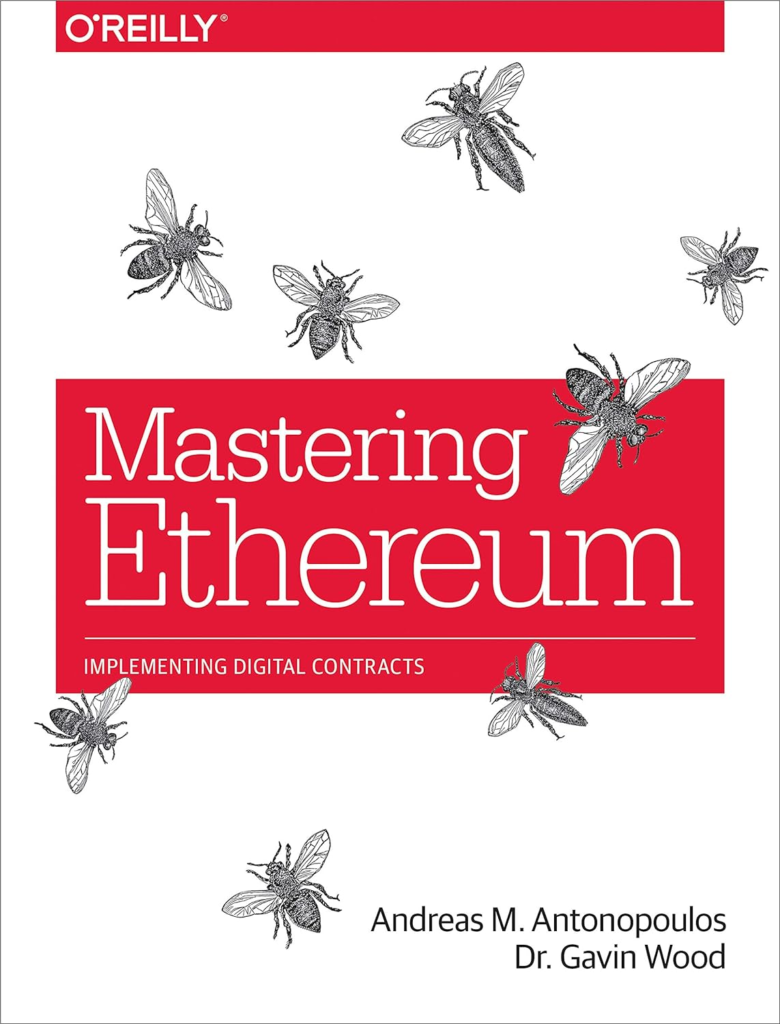
Written for those interested in the development side of blockchain, this book provides a detailed guide to building applications using Ethereum and smart contracts. It is an essential read for developers looking to expand their skills in creating decentralized applications.
“Mastering Ethereum: Building Smart Contracts and DApps” by Andreas M. Antonopoulos and Gavin Wood
“The Age of Cryptocurrency: How Bitcoin and Digital Money are Challenging the Global Economic Order” by Paul Vigna and Michael Casey

This book offers an advanced discussion on the socio-economic implications of cryptocurrencies and blockchain. It’s ideal for readers interested in the broader economic, political, and social context of blockchain technology.
These books are ideal for readers who are not only comfortable with blockchain basics but are also eager to explore advanced concepts and applications. They provide deep dives into both the technical details and the broader implications of blockchain, making them invaluable resources for anyone looking to fully understand and perhaps even contribute to the future of blockchain technology.
Understanding Cryptocurrencies through Literature
Cryptocurrencies, often seen as the most direct application of blockchain technology, have transformed the landscape of digital finance. For those looking to get a comprehensive understanding of cryptocurrencies through authoritative literature, there are several key books that dive deep into the mechanics, economics, and future potential of digital currencies. Here’s a curated list of essential reads for anyone interested in truly grasping the concept and impact of cryptocurrencies.
“Digital Gold: Bitcoin and the Inside Story of the Misfits and Millionaires Trying to Reinvent Money” by Nathaniel Popper

This book offers a fascinating narrative of the history and development of Bitcoin, the first cryptocurrency. Popper provides a detailed account of the personalities and technology behind Bitcoin’s rise. It’s a compelling read that combines storytelling with a deep dive into technical and economic analysis.
“The Book of Satoshi: The Collected Writings of Bitcoin Creator Satoshi Nakamoto” by Phil Champagne

This book provides a comprehensive collection of all known writings by Satoshi Nakamoto, the pseudonymous creator of Bitcoin. It includes all of his emails and posts on computer forums, presented in chronological order. “The Book of Satoshi” offers readers an opportunity to delve directly into the thoughts and communications of one of the most mysterious figures in the tech world. This direct access to Nakamoto’s writings provides unparalleled insights into the philosophical and technical foundations of Bitcoin.
“The Internet of Money” by Andreas M. Antonopoulos

Across a series of essays, Andreas M. Antonopoulos explores the cultural, social, and historical implications of cryptocurrency and blockchain technology. “The Internet of Money” doesn’t focus as much on the technical details of Bitcoin but rather on the why of Bitcoin. Antonopoulos’s insightful essays explain how cryptocurrencies like Bitcoin are more than just a new form of money; they are a radically different way of thinking about and using money that challenges the societal norms surrounding financial systems.
These books are indispensable for anyone who wishes to understand the complex world of cryptocurrencies. Whether you are a novice eager to learn about this new form of money or a seasoned investor looking to deepen your knowledge, these books provide the insights you need to navigate the crypto space effectively.
Technical Guides for Aspiring Developers
For developers interested in the technical intricacies of blockchain and looking to build decentralized applications, there are several comprehensive guides that delve into the programming and implementation aspects of blockchain technology. These books are essential for anyone aiming to become proficient in creating blockchain solutions. Here’s a selection of top technical guides that cater specifically to aspiring blockchain developers.
“Programming Bitcoin: Learn How to Program Bitcoin from Scratch” by Jimmy Song
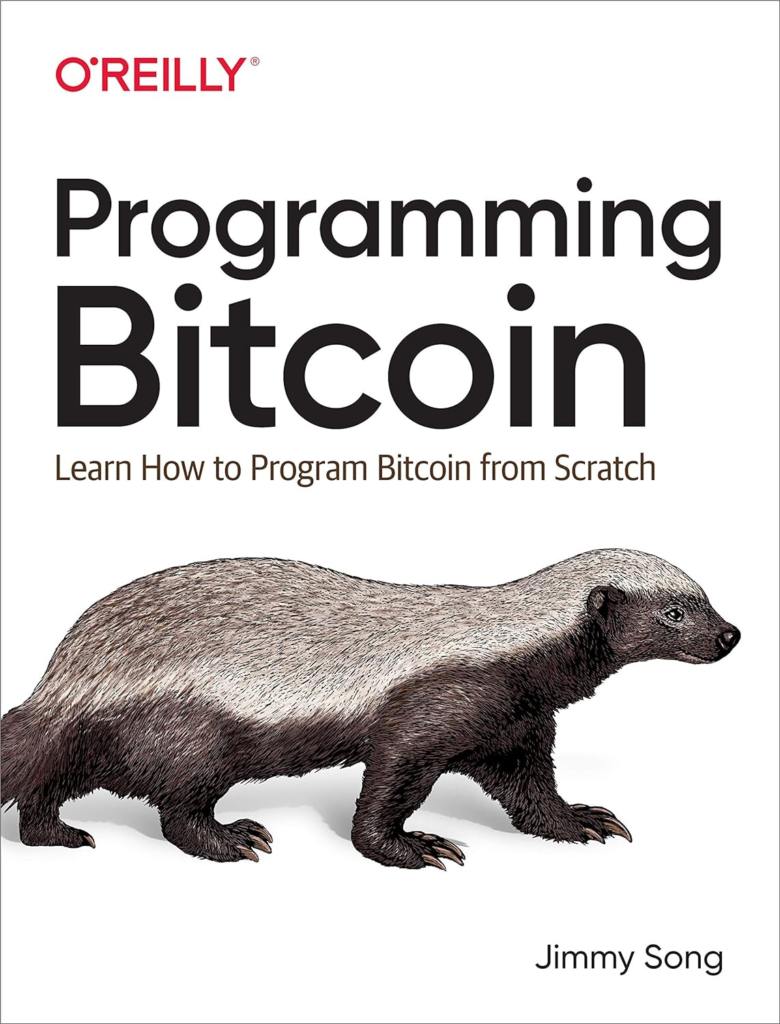
Jimmy Song provides a programmer’s approach to understanding Bitcoin and blockchain technology. The book teaches readers how to program Bitcoin-compatible software from scratch using Python, covering aspects from cryptographic primitives to transaction processing.
“The Basics of Bitcoins and Blockchains” by Antony Lewis
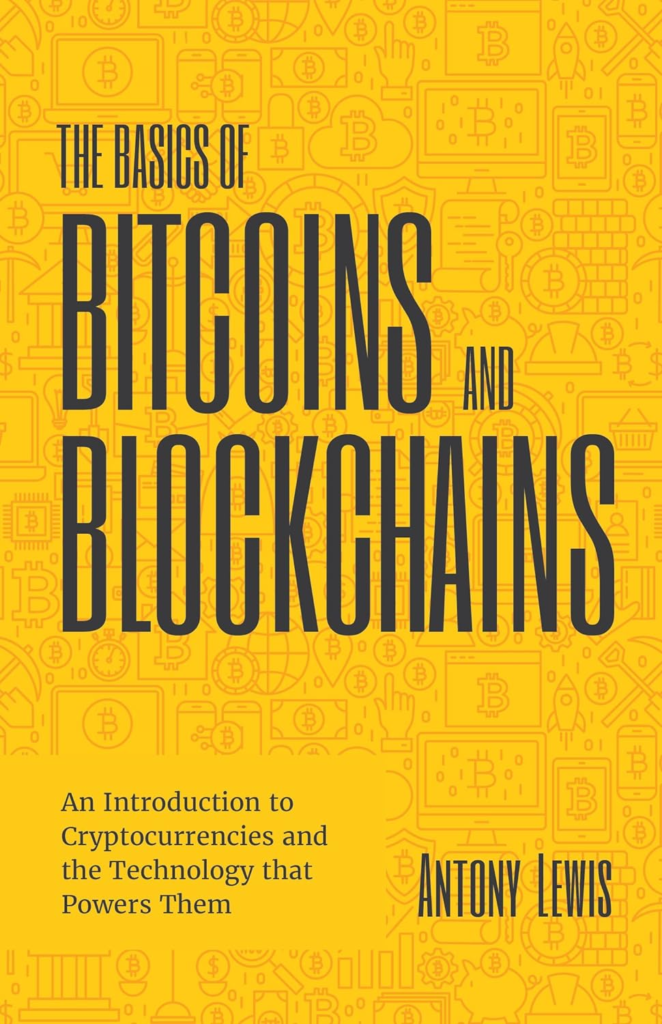
Although slightly broader in its approach, this book offers a clear understanding of the technical aspects of both Bitcoin and blockchain technology. It is designed for readers with a technical background who are new to blockchain. The book covers important topics such as the mechanics of blockchain, how transactions work, and an overview of cryptography, providing a strong foundation for those interested in developing blockchain applications. Antony Lewis uses clear, concise language to explain complex technical systems in an accessible way.
“Introducing Ethereum and Solidity: Foundations of Cryptocurrency and Blockchain Programming for Beginners” by Chris Dannen

A beginner-friendly guide that introduces the concepts of cryptocurrencies and blockchain before moving into more detailed instructions on how to write smart contracts in Solidity and develop applications on top of Ethereum.
“Blockchain Developer’s Guide: Develop Smart Applications with Blockchain Technologies” by Brenn Hill, Samanyu Chopra, and Paul Valencourt
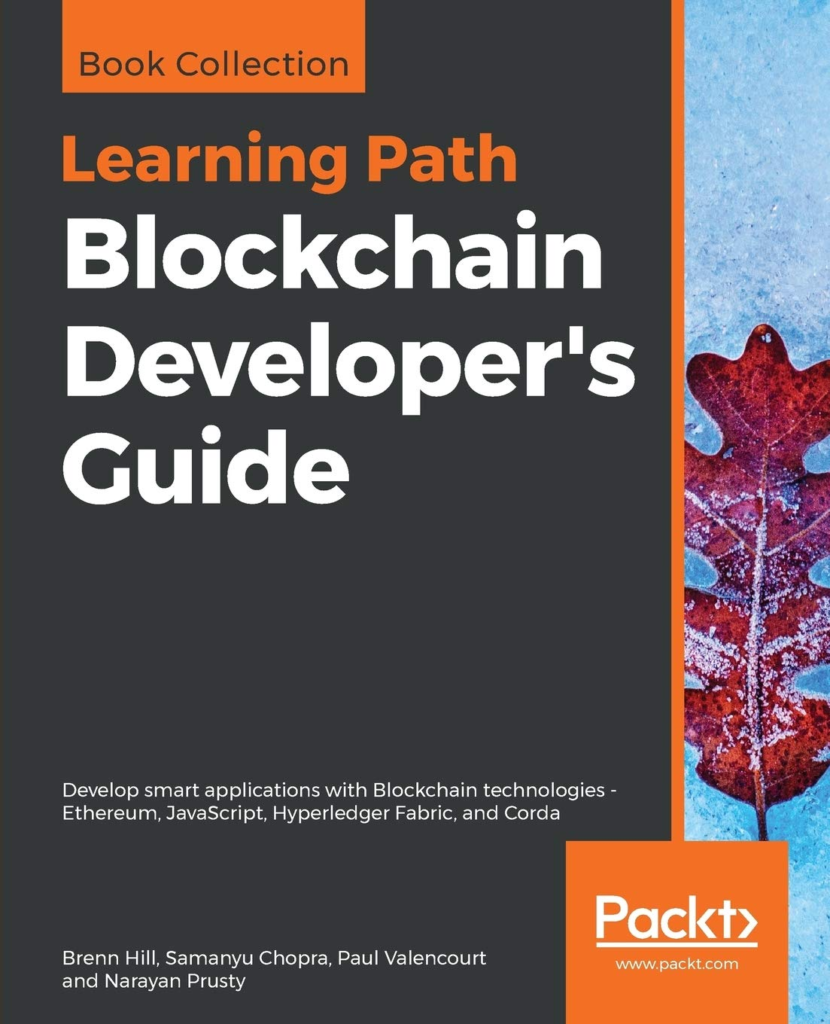
This comprehensive guide covers a range of blockchain platforms, including Ethereum, EOS, and Hyperledger Fabric, providing practical instructions on developing blockchain-based applications. It also discusses the architectural nuances of each platform and best practices for blockchain development.
These technical guides are invaluable resources for developers looking to gain a solid understanding of how blockchain technology operates under the hood and how to apply this knowledge to create functional and innovative blockchain-based applications. Each book offers unique insights and varying levels of complexity, catering to both beginners in blockchain programming and experienced developers seeking to enhance their skills.
Investment Guides on Cryptoassets
As interest in digital currencies continues to grow, so does the need for clear, informed guidance on how to invest in these new assets. Whether you’re a seasoned investor looking to diversify your portfolio or a newcomer curious about crypto investments, the following books provide valuable insights into the complexities of investing in cryptoassets. Here’s a selection of essential reads for anyone interested in the investment aspect of cryptocurrencies.
“The Crypto Trader: How anyone can make money trading Bitcoin and other cryptocurrencies” by Glen Goodman

Glen Goodman, a veteran trader, offers practical advice on trading and investing in the volatile crypto market. Drawing from his own experience as a successful trader who profited from the dotcom boom and bust, Goodman provides insights into navigating the highs and lows of cryptocurrency markets. “The Crypto Trader” is designed to equip investors with the strategies needed to identify potential opportunities and manage risks effectively in crypto trading. This book is particularly valuable for readers interested in learning trading techniques and understanding market analysis to make informed investment decisions in the world of cryptocurrencies.
“Mastering Blockchain: Deeper Insights into Decentralization, Cryptography, Bitcoin, and Popular Blockchain Frameworks” by Imran Bashir
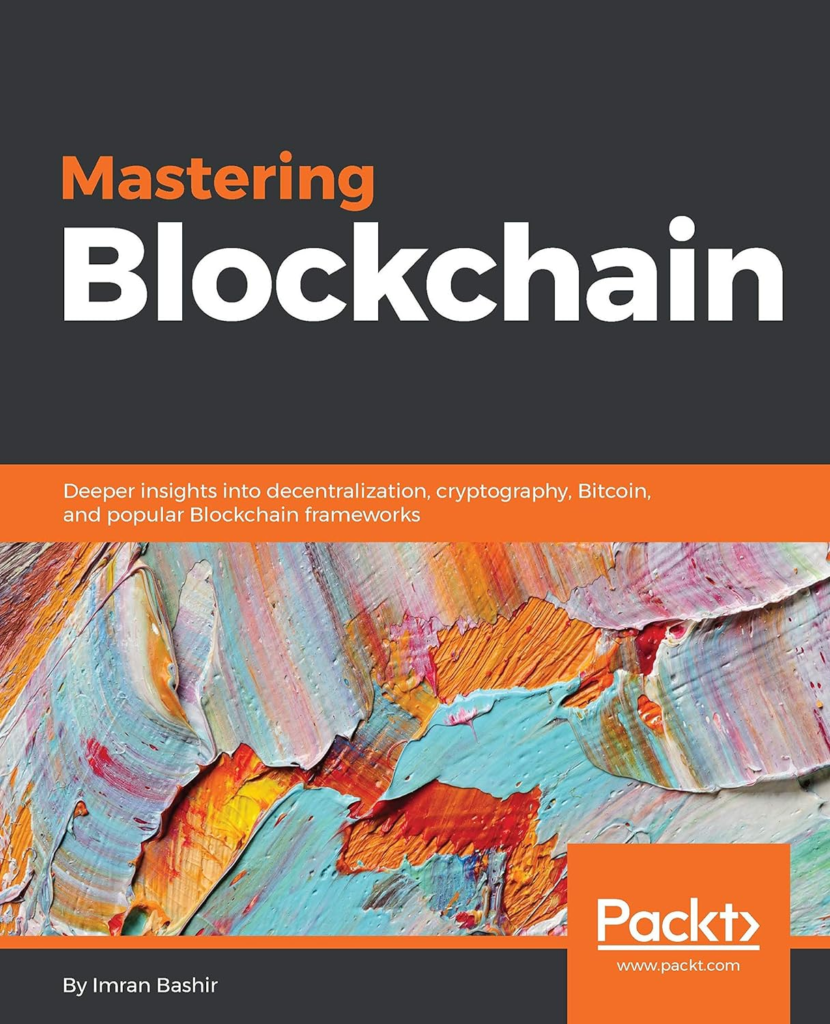
Although technical, this book also delves into the investment aspects of blockchain technology and cryptocurrencies. It’s particularly useful for investors who want to get a deeper understanding of the operational and contextual frameworks of blockchain investments.
These books offer a range of perspectives on cryptoasset investment, from technical analysis and market dynamics to personal stories and strategic frameworks. They provide both the foundational knowledge required to understand the market and the advanced strategies needed to navigate it effectively. Whether you’re looking to invest directly in cryptocurrencies or engage with related blockchain projects, these guides will equip you with the necessary tools and knowledge to make thoughtful and informed investment decisions.
See also: Best Hardware Wallets to Buy
Emerging Trends in Blockchain
As blockchain technology continues to evolve, new trends and applications are emerging that have the potential to transform various industries. Staying informed about these developments is crucial for anyone involved in technology, finance, or innovation. This section explores some of the most exciting and significant trends in blockchain technology, providing insights into future directions and opportunities.
Decentralized Finance (DeFi)
- DeFi is one of the most transformative trends in the blockchain space, offering financial services including loans, interest-bearing accounts, and asset trading without the need for traditional financial intermediaries like banks. This shift towards decentralized financial ecosystems represents a major step in using blockchain for more than just cryptocurrencies.
Non-Fungible Tokens (NFTs)
- NFTs have revolutionized the digital art and collectibles market by providing a way to certify ownership and authenticity of digital goods using blockchain technology. Beyond art, NFTs are expanding to other areas such as digital identity, licensing, and certification, showcasing the versatility of blockchain in creating unique, non-interchangeable digital assets.
Blockchain in Supply Chain Management
- The application of blockchain in supply chain management promises enhanced transparency, traceability, and efficiency. By recording every transaction in an immutable ledger, blockchain can help verify the authenticity of products, streamline logistics, and reduce costs associated with counterfeiting and fraud.
Smart Contracts and Beyond
- Smart contracts automate agreements and transactions without human intervention, based on predefined rules and conditions coded into the blockchain. The potential applications are vast, from automating insurance claims and legal agreements to enabling more complex decentralized autonomous organizations (DAOs).
Blockchain for Social Impact
- Increasingly, blockchain is being used to address social and environmental issues. Whether it’s improving the transparency of charitable donations, enhancing accountability in public services, or facilitating more secure voting mechanisms, blockchain is proving its capacity to contribute to social good.
Integration of Blockchain with Other Emerging Technologies
- The convergence of blockchain with other technologies such as AI, IoT, and quantum computing opens new frontiers. For instance, blockchain can secure the vast networks of IoT devices, while AI can enhance the efficiency of blockchain operations by optimizing mining processes and automating complex decision-making.
Regulatory Evolution and Standardization
- As blockchain matures, regulatory frameworks around the world are evolving to accommodate and govern its applications. Standardization efforts are also crucial for fostering interoperability between different blockchain systems and ensuring a stable and scalable infrastructure.
Blockchain as a Service (BaaS)
- BaaS platforms are emerging as a way for businesses to use blockchain without the complexity and cost of developing their own blockchain solutions. Major cloud service providers are already offering BaaS, which could significantly accelerate blockchain adoption across industries.
Staying abreast of these trends is essential for understanding the current and future landscape of blockchain technology. Each of these areas not only offers new opportunities but also presents challenges that need careful consideration and strategic planning. For anyone looking to innovate or invest in blockchain, these trends provide a roadmap of what to expect and where to focus efforts in the coming years.
How to Choose the Right Blockchain Book
Choosing the right blockchain book can be pivotal in enhancing your understanding and capabilities within this innovative technology field. Given the plethora of books available, it can be challenging to decide which one will best meet your needs. Here are some guidelines to help you select a blockchain book that aligns with your learning objectives and level of expertise.
Determine Your Current Knowledge Level
- Beginner: If you are new to blockchain, look for books that cover fundamental concepts and provide a broad overview of what blockchain is and how it works. Books that use non-technical language and provide real-world examples can be particularly helpful.
- Intermediate: If you have a basic understanding of blockchain and perhaps some hands-on experience, choose books that delve into more specific applications of blockchain, such as development, business applications, or advanced use cases.
- Advanced: For those who are comfortable with blockchain technology and seeking deep technical knowledge, look for advanced texts that explore complex topics such as cryptographic techniques, blockchain scalability, or the intricacies of specific blockchain platforms like Ethereum or Hyperledger.
Consider Your Learning Goals
- Technical Proficiency: If you aim to develop blockchain applications or understand the underpinnings of blockchain technology, select books that focus on programming, architecture, and technical details.
- Investment Insights: If your interest in blockchain is primarily for investment purposes, opt for books that analyze the financial aspects of blockchain and cryptocurrencies, including market trends and investment strategies.
- Industry-Specific Applications: If you’re interested in how blockchain can be applied in specific industries like healthcare, finance, or supply chain management, look for books that focus on case studies and real-world applications in these fields.
Check Author Credentials
- Verify the author’s background to ensure they have credible expertise related to blockchain. Authors who are practitioners, researchers, or recognized experts in the field are likely to provide accurate and valuable insights.
Read Reviews and Recommendations
- Look at reviews from other readers and experts to gauge the quality and relevance of the content. Reviews can provide insight into how well the book meets its educational goals and whether it lives up to reader expectations.
Look at Publication Date
- The blockchain field is evolving rapidly, so it’s important to choose books that are up-to-date. While foundational concepts are relatively stable, information about recent developments, current regulatory environments, and the latest technologies will be best covered in newer publications.
Sample the Book
- Many online book retailers and platforms offer a preview or a sample chapter. Take advantage of this feature to assess the writing style, depth of content, and how well the material matches your learning preferences.
By carefully considering these factors, you can choose a blockchain book that not only fits your current understanding but also supports your future growth and interests in this dynamic field. Whether you are looking to build foundational knowledge, explore specific applications, or gain technical expertise, the right book can be a valuable resource in your blockchain journey.
Conclusion
Choosing the right resources to learn about blockchain can significantly influence your understanding and proficiency in this rapidly evolving field. The “Best Blockchain Books” we’ve discussed offer a comprehensive range of insights and knowledge for learners at all levels. Whether you’re just starting your journey with blockchain or are looking to deepen your existing knowledge, there is a book tailored to meet your needs.
From foundational texts for beginners to advanced guides for seasoned professionals, each book provides unique perspectives and specialized knowledge that can help you achieve your specific learning objectives. Remember, the key to effectively navigating the complexities of blockchain is continuous learning and staying updated with the latest developments.
We encourage you to explore these books, assess them based on your personal and professional aspirations, and choose those that will best help you understand and leverage blockchain technology. Whether your interest lies in the technical underpinnings, investment opportunities, or industry-specific applications, these books are valuable tools that can assist you in becoming proficient in the world of blockchain.
Armed with the knowledge from the best blockchain books, you’ll be well-equipped to participate in conversations about blockchain, make informed decisions, and potentially contribute to innovations in this transformative field.






Pingback: Mastering Blockchain Application Development: Essential Guide to Courses, Tools, and Industry Impact in 2024 - Wealth Tech Portal
Pingback: AI Trader: Revolutionizing the Stock Market with Artificial Intelligence - Wealth Tech Portal